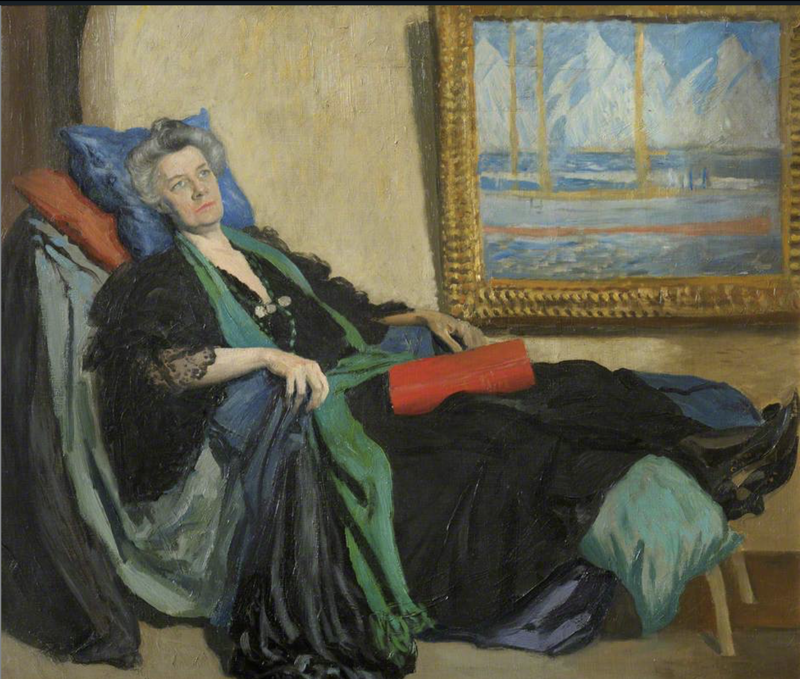Harrison’s reputation rested on her public performances, where she stripped away the technicalities and was (as she put it herself in Reminiscences) ‘almost fatally fluent’. Flamboyantly dressed and armed with what were hailed as the most up-to-the-minute visual aids, in the form of stunning lantern slides, she drew vast crowds to her open lectures – on one occasion, so she said, attracting 1600 fans in Glasgow to a presentation on the topic of Athenian tomb sculpture. She even created something of the same atmosphere in her university lectures. ‘The hushed audience would catch the nervous tension of her bearing,’ wrote one of her academic colleagues about her teaching of classical archaeology. ‘Every lecture was a drama.’ Several years ago, some of Harrison’s slides were rediscovered, buried in a cupboard in Newnham. They didn’t quite live up to the hype, but they were exquisitely painted on glass, with key words etched onto them (almost the equivalent of a modern PowerPoint).
This is interesting just as an entry in the history of instructional technology — I am tempted to visit Cambridge just to investigate those slides — but of course I am intrigued because, as I have already mentioned, my work on Dorothy L. Sayers has gotten me deeply interested in the place of women at Oxford and Cambridge in the first decades of the twentieth century. Here’s a telling little item from Mary Beard’s essay:
One of the most chilling pieces of trivia preserved in the Newnham archive is a copy of a note written to the university librarian by a senior classicist (the otherwise very liberal Henry Jackson) pointing out that he had spotted ‘Miss Harrison’ with a library book in her possession. As women were not allowed to enter, let alone borrow from, the library, he concluded that some male friend must have illicitly borrowed it on her behalf and that an investigation should ensue. Such casual surveillance and such officious, sneaky betrayal seem almost worse than the exclusion in the first place.

Portrait of Jane Harrison by Augustus John